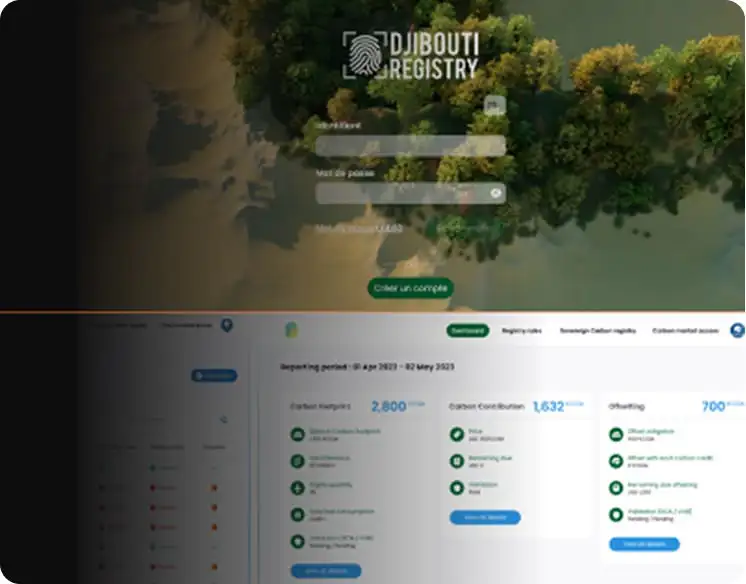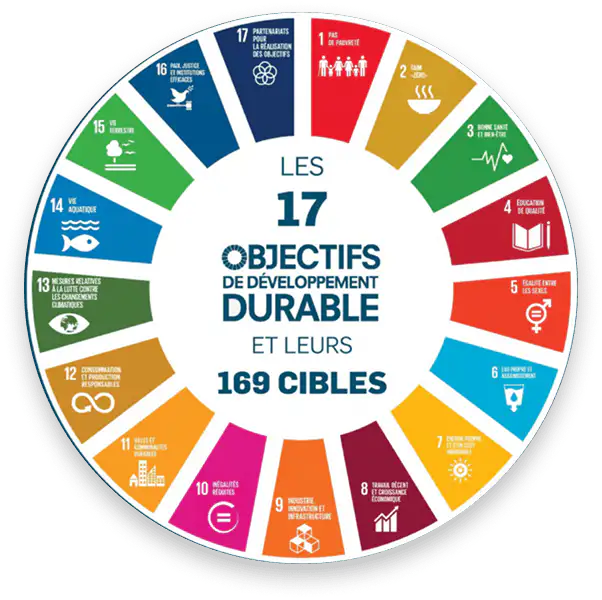Africa is the continent most vulnerable to climate change. Its effects already affect all sectors of its economy, ecosystems and populations, making it urgent to implement sovereign initiatives and programs for energy or environmental transition.
Many African countries are implementing national Carbon Initiatives that align with the commitments of the Paris Agreement and their global decarbonization goals.
Based on the Polluter-Pays Principle, the introduction of a Carbon Contribution shifts the cost of the energy and environmental transition onto the main greenhouse gas (GHG) emitters, while prioritizing the development of high-impact programs within national territories.
These mechanisms make it possible to redirect the financial effort of international polluters to the countries where they actually pollute.
This is particularly true for the maritime and aviation sectors, which are already engaged in carbon offsetting efforts on international carbon markets — but rarely to the benefit of the countries where a significant share of their GHG emissions are generated.

Sovereign Carbon Registries were designed to ensure compliance of national Carbon Initiatives with international standards and norms for carbon accounting as well as internationally recognized rules of good governance and transparency.
Independent and harmonized, they allow each national Carbon Agency (or any other government entity in charge) to develop its own Sovereign Carbon Registry. They are not intended to intervene in areas that fall under the sovereignty of countries and their national carbon agencies.
Thus, the definition of the Obligated Entities or sectors (the Obligors) subject to the obligation of the Carbon Contribution, the tariff of this Contribution, the selection of environmental, energy or impact programs to be financed, and the distribution between the Carbon Contribution and compulsory Offsetting effort of the Obligors, fall under the exclusive jurisdiction of the national Carbon Agencies.
the Obligors to record the carbon footprint of their activities in the country where they operate according to recognized carbon accounting methodologies and international sectoral standards (e.g.: CORSIA, IMO, etc.).
the Government to register, monitor and ensure the verification of the mitigation efforts of the Obligors: Carbon Contribution payment and Offsetting actions.
to register and monitor programs funded by the Carbon Contribution collected from the Obligors.
Sovereign Carbon Registries are subject to third party independent verification and certification to ensure their strict integrity by an audit company (Bureau Veritas) recognized for the quality and rigor of its services in accordance with current standards (ISAE 3410/3000), as well as a financial audit carried out by an international firm (Mazars).
The Sovereign Carbon Registries aim to support the implementation of national strategies for energy transition, environmental protection and restoration, and sustainable development goals as defined by the United nations, for the benefit of communities most affected by climate change.

Sovereign Carbon Registries are operated and governed under internationally recognized standards, ensuring full transparency and independent verification by accredited audit and verification firms with proven expertise.
Sovereign Carbon Registries maintain strict independence from all government bodies, including national carbon agencies.
The rules for calculating and reporting the carbon footprint of Obligors align with international standards (GHG Protocol, ISO 14064, PAS 2060), sectoral frameworks (CORSIA, IMO), and recognized emissions factor databases (IPCC, DEFRA, IMO, etc.).
Carbon offsetting is carried out through the retirement of carbon credits issued under leading certification standards (such as Verra and Gold Standard), in compliance with the Core Carbon Principles established by the Integrity Council for the Voluntary Carbon Market (ICVCM).
Africa Sovereign Carbon Registry and national Sovereign Carbon Registries respect the sovereignty of states, their governments and national Carbon Agencies.
They do not intervene in the choice of ‘Obligated’ sectors, nor in the selection and implementation of impact, energy or environmental programs funded by the revenues of the Carbon Contributions.